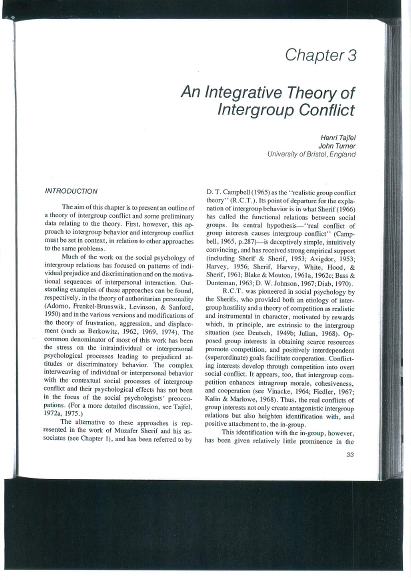
The aim of this chapter is to present an outline of a theory of intergroup conflict and some preliminary data relating to the theory. First, however, this approach to intergroup behavior and intergroup conflict is set in context in relation to other approaches to the same problems. The alternative to these approaches is represented in the work of Muzafer Sherif and his associates and their "realistic group conflict theory" (R.C.T.). Its central hypothesis—"real conflict of group interests causes intergroup conflict" is simple and haas received strong empirical support. The theoretical orientation outlined here is intended not to replace the R.C.T., but to supplement it in some respects that seem essential for an adequate social psychology of intergroup conflict—particularly as the understanding of the psychological aspects of social change cannot be achieved without an appropriate analysis of the social psychology of social conflict.